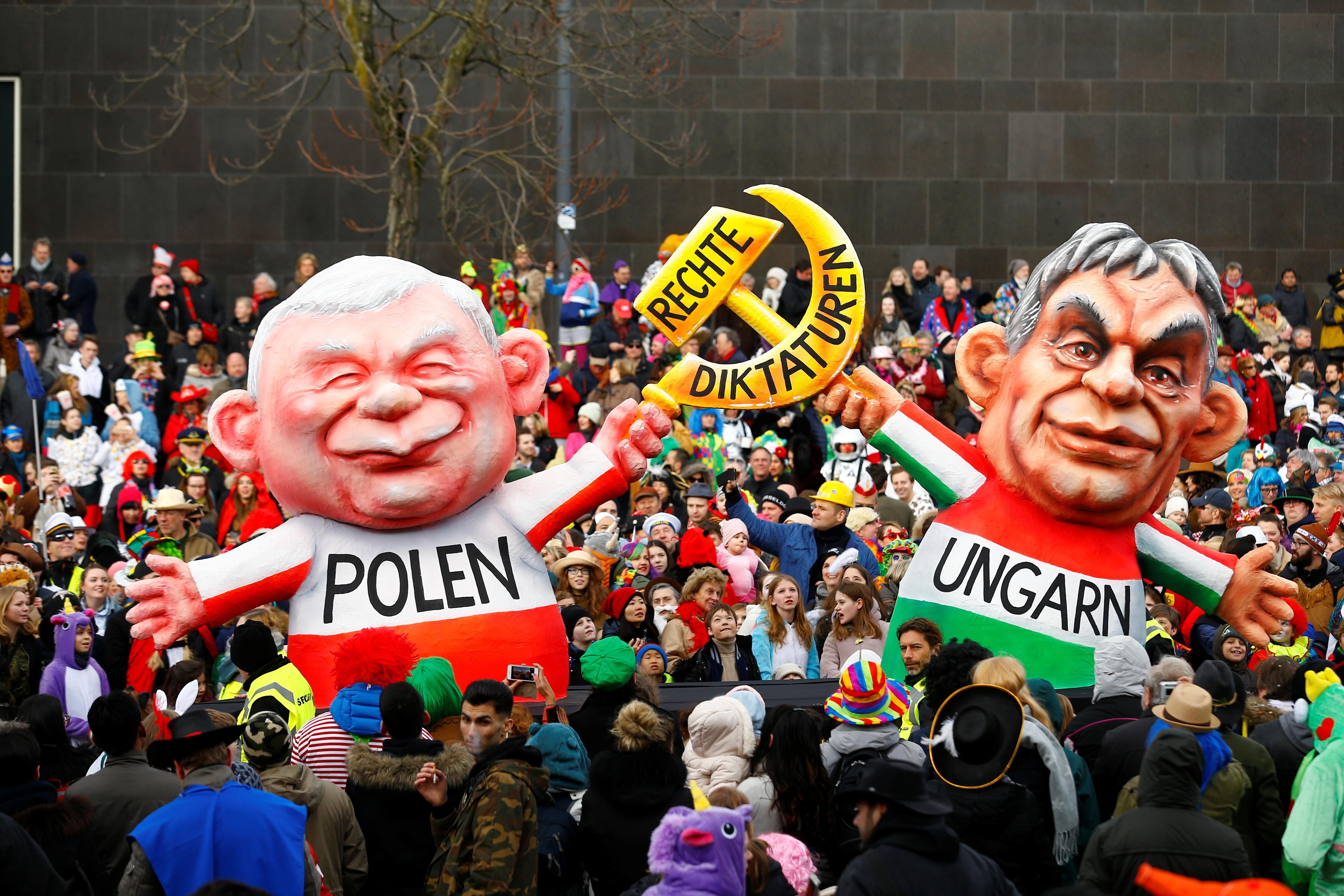The European Union is, for better or worse, the most ambitious experiment in human history in institutionalized multinational cooperation. Its success depends on the willingness of its members to abide by its rules.
In recent years, the populist-nationalist governments of former Communist bloc members Hungary and Poland have flouted some of those rules in order to boost their own popularity with citizens suspicious of the EU's liberal values on issues like immigration and minority rights. In response, the EU has scolded these "illiberal" governments and threatened forceful action – so far without much effect.
The fight between EU institutions and Poland and Hungary has escalated.
In Poland, the latest battle is over judicial authority. According to EU treaties, all union members are subject to EU laws and the final authority of the European Court of Justice. But Poland's constitutional court ruled last week that Poland's constitution trumps EU law, a direct challenge to the basis of EU membership.
In Hungary, Prime Minister Viktor Orbán has faced off with the EU over press freedom and minority rights. The latest row began when Hungary's parliament passed legislation that bans the display to minors of products that depict or promote homosexuality or gender transformation themes. The government says the law protects kids and Hungary's family values, while the European Commission says it undermines values of tolerance and individual freedom enshrined in European law.
In the past, picking fights with the EU has boosted the popularity of both Orbán and Poland's Law and Justice Party-led government, headed by Jaroslaw Kaczyński, by playing on the anger that social conservatives feel toward liberal elites in Brussels. That's the main reason these governments tend to welcome fights with the EU.
They also know that, no matter how frustrated EU officials become with challenges from Warsaw and Budapest, the EU can't kick them out. Ejection requires a unanimous vote of all 27 EU members. To protect their own interests, Poland would veto such a move against Hungary, and Hungary would do the same for Poland.
But… there are three main reasons to believe that this time it's different.
First, it appears EU officials have had enough. Poland's court ruling is too direct a challenge to EU rules to ignore, and Hungary's government has been picking fights with Brussels for years.
Second, the European leader most instrumental in persuading EU institutions to go easy on Poland and Hungary is now leaving the stage. Germany's Angela Merkel will soon be out of power, and the country's likely incoming center-left coalition government will be much less sympathetic to rule-of-law challenges from its Eastern neighbors.
Third, Brussels has a powerful new weapon. The European Commission can withhold large amounts of much-needed COVID recovery funds until these two governments prove they respect EU rules. That's 36 billion euros ($41.7 billion) for Poland and 7.2 billion euros for smaller Hungary. The Commission is already signaling that Poland and Hungary will have to offer serious and specific concessions before checks are cut. Initial disbursements have already been delayed.
The Polish and Hungarian governments have limited leverage to fight back. Opinion polls show that strong majorities in both countries favor continued EU membership — and both governments have acknowledged as much. In Poland, the court rulings sent hundreds of thousands of pro-EU Poles into the streets in protest.
And Hungary's Orbán faces a tough fight for re-election next year against a united opposition that has labelled the race a choice of "Orbán or Europe."
Both governments need only look toward the Czech Republic, where a surprise election result last weekend leaves euroskeptic, anti-immigration populist Andrej Babiš on the verge of losing power.
These fights will drag on into next year. But this time, Brussels may finally be fighting to win.
